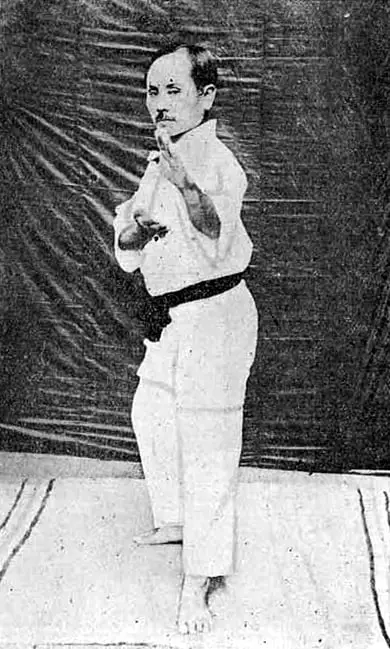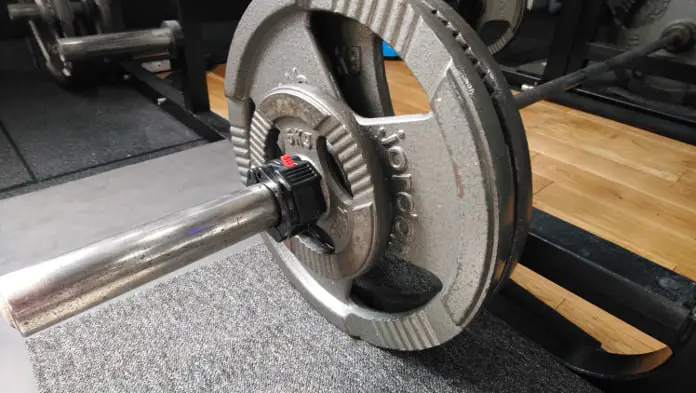Traditional Shotokan Karate
I feel that because traditional Shotokan karate is holistic, it teaches you valuable skills that can and often will transfer to your life outside the dojo.
These skills can help you to become a stronger better person and equip you to deal with life and obstacles that you may come across in your everyday life.
Teaching dojo Kun could help many children feel like they belong. Help build their self-esteem and confidence. Give them the confidence to speak up for themselves when necessary. Therefore I think that Traditional Shotokan Karate is a valuable resource that is definitely necessary for today’s society. Children and young people are bombarded with unachievable expectations. As well as self-esteem destroying images and challenges on social media.
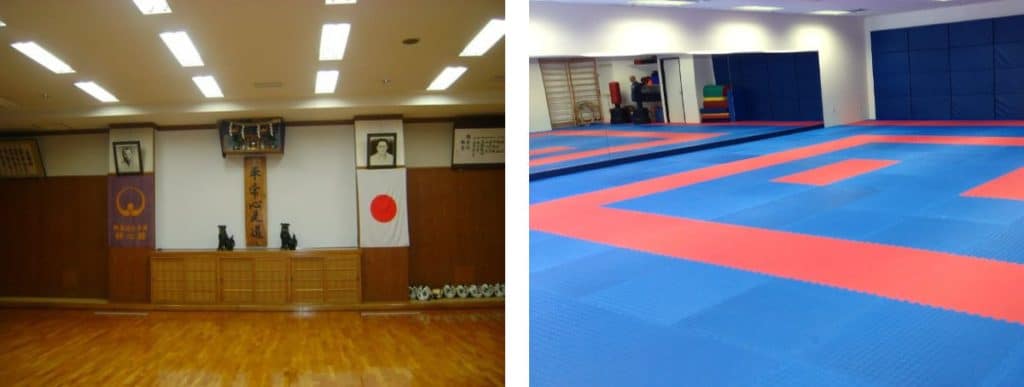
History of Shotokan Karate
Gichin Funakoshi is the founding father of Shotokan Karate. Gichin Funakoshi was born in Okinawa in 1868 and starting learning kara-te when he was a child. Kara-te is a unique Okinawan bujutsu that does not use any weapons; instead, it mainly uses clenched fists.
Gichin Funakoshi was an elementary school teacher, as well as an author and kara-te master. His pen-name was Shoto. When his students completed his personal dojo, they named it Shotokan. Shoto, which was his pen-name, means Pine Waves, and kan means hall.
Gichin Funakoshi was invited to give an exhibition in mainland Japan in 1922 after the Emperor had seen a demonstration of kara-te in Okinawa. Many people were impressed, including the Admiral of the Navy. The navy sent officers to study kara-te but was reluctant to let the men in the navy train in kara-te as it was seen as too dangerous.
Gichin Funakoshi developed karate further by combining the martial art of kara-te with the budo philosophy akin to that of Judo and Kendo.
He believed that “The Way of Karate must inwardly cultivate a clear conscience and must possess the power outwardly to even overpower and make beasts tremble. This inward quality of mind and outward quality of technique must be present at the same time to be faultlessly called ‘The Way of Kara-te.’ .“ (Karate-Do Kyoan, written by Master Gichin Funakoshi).
In traditional Shotokan Karate, you train your body, mind, and spirit. The Way of Karate is the development and improvement of the body and the character of the practitioner.
The image of Gichin Funakoshi has been sourced from Wikimedia Commons.
Below is the thesis I wrote for my Shotokan Karate 3rd Dan Black Belt exam. Edited for the purposes of this article. Written by Daniella Cranfield
Bullying Statics
Bullying, self-harm, anxiety, and suicides are on the increase, alarmingly the number of children experiencing this is on the increase.
The NSPCC reports that last year’s (2016/2017) ChildLine provided over 295,000 counseling sessions to children and young people. Their website received over 3.2 million web visits and has almost 850,000 total registered users.
1 in 3 ChildLine counseling sessions related to mental and emotional health and wellbeing issues. Including self-harm and suicidal thoughts or feelings.
There were over 13,700 counseling sessions about anxiety. There were over 22,400 counseling sessions about suicidal thoughts and feelings – the highest ever.
The top 3 concerns young people were counseled about; these were obtained from (www.nspcc.org/uk Jan 2018).
- Mental and emotional health
- Family relationships
- Bullying or cyberbullying
I think that the most worrying part of these figures is the fact that these are for children and young people who felt able to reach out for help. How many children and young people are experiencing these negatives and don’t feel that they can reach out?
Not to mention that these figures are from only 1 source in the UK.
What Does This Have to do With Traditional Shotokan Karate?
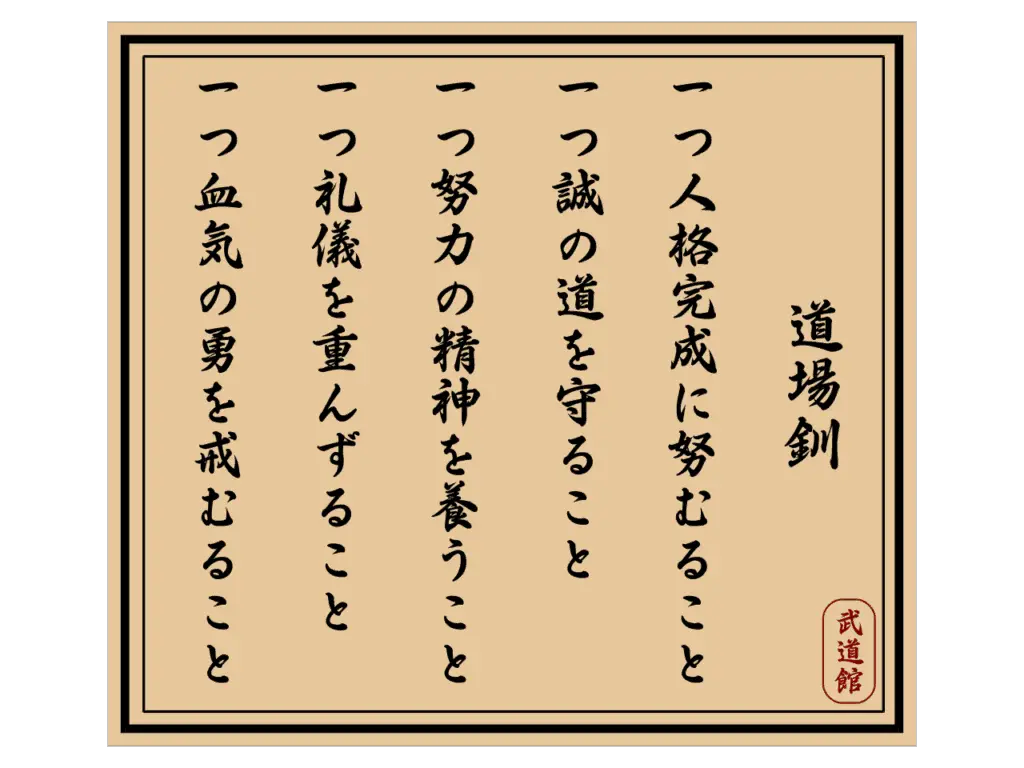
Traditional Shotokan Karate takes a holistic approach to the practitioner.
Traditional Shotokan Karate follows Dojo Kun (Dojo Code) which is:
- Strive for the perfection of character
- Defend the ways of truth
- Foster the spirit of effort
- Honor the principles of etiquette
- Guard against impetuous courage
Are these things relevant in today’s society? I would argue that they are more relevant today than ever.
To Strive for The Perfection of Character
In traditional Shotokan karate the aim is not to be better than anyone else, but to be better than you were before. Continual self-improvement, not just in the physical techniques but in your attitude and your behavior.
This means that you need to work on the mind and spirit as well as the physical body.
There are many things that you must learn to do, these include:
- Watch and listen
- Be resilient, disciplined, determined, and dedicated
- Have confidence in your own abilities and those of the people around you
- Learn control
- Ask questions – if you don’t understand something, or why you are doing something a certain way
- Ultimately you must learn to respect yourself, others, and your environment
These are some of the things that practicing traditional Shotokan karate will help you to learn, which will ultimately help you improve your overall character. As well as the added physical benefits of regular training.
By practicing traditional Shotokan karate you will learn resilience. You will make mistakes, lots of mistakes, and not just at the beginning of your journey. You will be encouraged to keep practicing until you get it right. Then you will be encouraged to do it better. To keep practicing to make it better still. In traditional Shotokan karate, this is a never-ending cycle.
In this way, you learn to be resilient, determined, and dedicated. You will learn not to give up after a couple of tries.
As you grasp a move or a technique you will feel good about yourself and therefore feel more open and willing to further your learning. Trying new techniques, which increases your confidence further and inspires you to try harder.
Every achievement you make, no matter how small, will help you develop your self-esteem and respect for your own abilities.
This continual training and effort will plant a small seed of self-confidence. Further training and encouragement will increase confidence and then will often enter into other areas of your life. This will allow you to feel confident in yourself as a person.
A person who is self-confident, resilient, determined, dedicated, and respectful, as well as physically active tends to be a more positive person. Someone who feels that they can and should help others if they need help.
A good Sensei (teacher) will guide you, as well as instruct you, and encourage you to help others as you have been helped to progress yourself. This is how you learn to respect others and what they can do.
The cycle of learning and teaching and learning breeds a culture of positive encouragement. This reinforces resilience, determination, dedication, confidence, control, and respect. Respect for yourself as well as for others. And within a positive environment, the spirit will flourish. It is your spirit that will help push you forward even when you feel that you have reached your limit.
A person with a positive confident character is much less likely to become a victim. Or to stand by and do or say nothing when they see something wrong happening.
To Defend The Path of Truth
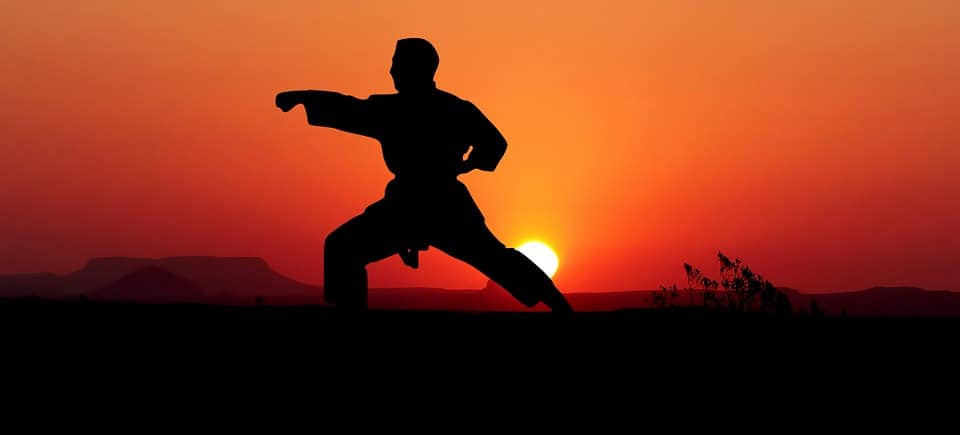
Integrity is a surprising side effect of practicing traditional Shotokan karate.
Over time you develop a healthy respect for your instructors and the other karateka (a person who studies karate) around you.
I am always pleasantly surprised by my fellow students’ honesty. When the Sensei shouts ‘everyone who just made a mistake 10 press-ups’. Those people who have made a mistake will drop and do those press-ups. Children as well as adults.
They don’t have to do them. No-one has been pointed out as making a mistake. They’re not going to get into trouble if they don’t. So why do they do it?
I personally think that it’s because of integrity, discipline, and respect. The karateka respects themselves enough not to lie to themselves. They know that they made a mistake.
The student respects the Sensei and will not lie to them. And they know that there is no shame in making a mistake. The aim is to know yourself if you have made a mistake.
Karateka respects the others around them and will not lie to them either. You will not be judged for making a mistake, after all – we all make mistakes.
When a person embraces integrity as part of their character, it will enter into other parts of their lives because simply, it is now who they are.
A person with integrity, respect, determination, and confidence is much less likely to stand by and see injustice or lie unfold without raising awareness of it. This is how we can defend the path of truth.
To Foster The Spirit of Effort
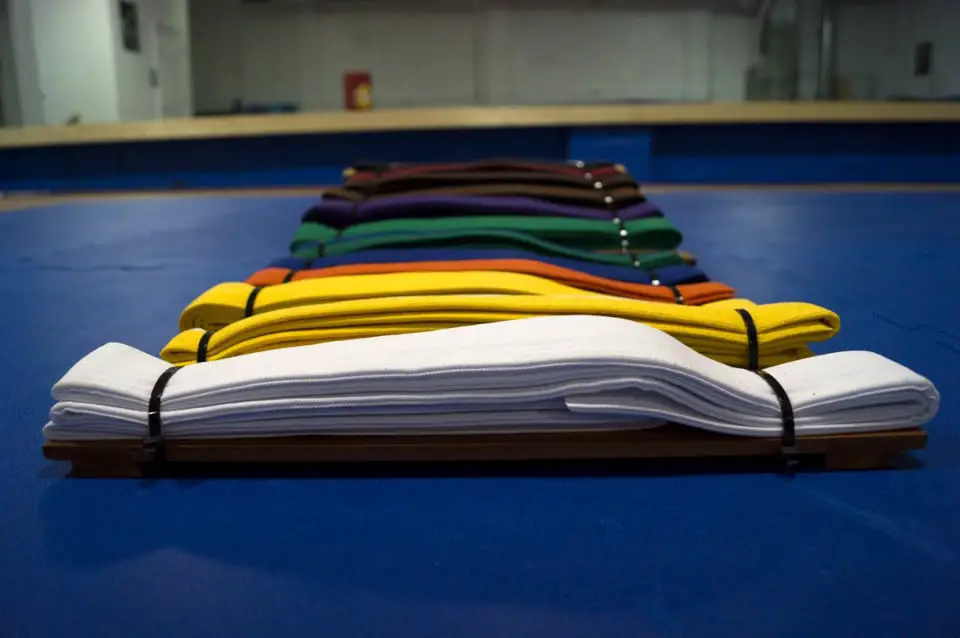
Traditional Shotokan karate requires effort, a lot of effort over years upon years of training. It is a lifetime journey with no guarantee that you will ever ‘master’ it. The more training that I do, the more I realize how much I don’t know and still must learn.
This doesn’t put me off. In fact, I find the opposite is true, I want to go to training and learn. I want to try my best and try to make my best better than it was yesterday.
It is with discipline, determination, dedication, and resilience that I put on my gi (karate suit) and turn up to the dojo (the place where you learn karate). And it is my fighting spirit that pushes my efforts to learn and be better than I was yesterday.
Without discipline, determination, dedication, resilience, or effort there is no way that you can progress meaningfully in traditional Shotokan karate. You will hit a barrier and be unable to continue the journey.
The cycle of learning, teaching, learning requires effort. But I find that this cycle also produces the motivation to put in the effort required.
Motivation can be learned. Once learned you can apply it to other areas in your life.
To Honour The Principles of Etiquette
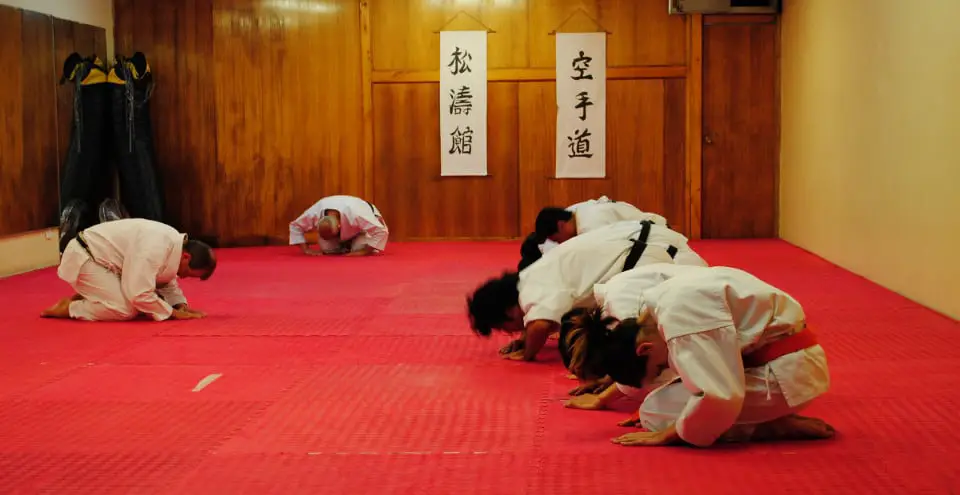
The dictionary definition of Etiquette reads
- the customs or rules governing behavior regarded as correct or acceptable in social or official life.
- A conventional but unwritten code of practice followed by members of any of certain professions or groups: medical etiquette.
Personally, I love the etiquette in traditional Shotokan karate. From bowing entering the dojo I feel like I am entering a safe-haven of positive energy and learning.
Everyone in the dojo is following the same rules and treating each other with respect. And everyone there wants to learn and make themselves better.
Bad manners or etiquette will not be tolerated. No-one will turn a blind eye to disrespectful behavior. I find the environment in the dojo refreshing and nourishing.
The instructors and students who practice traditional Shotokan karate have learned discipline and respect.
The overt display of respect in the dojo and which we show to each other seems, to me, to reinforce respect and good manners. To ingrain it into you as a person.
In western society, you may respect a place or person. However, we rarely overtly show this respect. I think that the overt display of respect in the dojo really embeds etiquette into you as a person.
In British society, I genuinely feel that we are losing this skill. Manners seem to be disappearing in our society.
I have worked in schools now for many years, and I can usually tell when a child practices martial art such as karate. They tend to be more respectful to the adults working with them and they tend to treat their peers with more consideration and respect than a lot of the other children.
In the beginning, I was shocked at how many children didn’t say please or thank you. Many of them had no idea how to sit at a table and eat their lunch and behave appropriately with their peers.
It was with experience and learning to know the children that I discovered that a great many of them never get the opportunity to sit down for a family meal. Many of them spend a shocking amount of time in front of the TV or a computer screen – the new babysitter. So they are missing out on real-life lessons through no fault of their own.
Too much screen time is detrimental to children. Children start to disassociate themselves from real life and real people. So they don’t realize the impact of their words or actions on another human being.
Schools are expected to teach manners. But many schools are stretched to breaking point. There is not enough staff or time to deal with the volume of problems brought into the classroom. A blind eye often gets turned to smaller issues, i.e. manners. Which is unfortunate. I think many bigger issues might disappear by going back to good manners.
There would be a lot fewer problems if children were taught and expected to display manners.
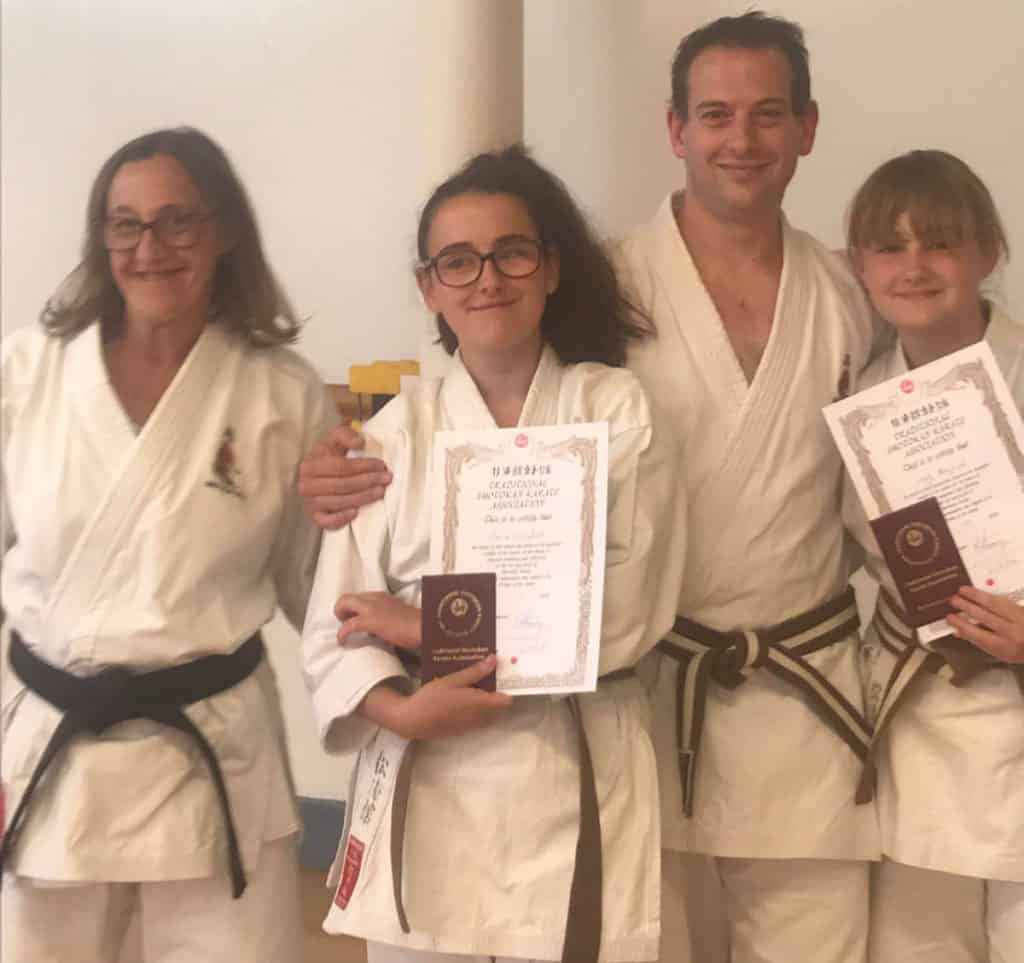
To Guard Against Impetuous Courage
Courage is admirable. However, rushing into a situation without assessing it and thinking it through can put yourself, as well as the person you wish to help, in more danger.
Traditional Shotokan karate teaches you control. You learn restraint and strategy. Through kihon, kata, and Kumite you learn about self-control. Judging distances, combinations, blocks, and counters, as well as how to observe and assess.
These skills can help you to deal with situations in the dojo as well as in life.
Conclusion
In conclusion, I feel that because traditional Shotokan karate is holistic, it teaches you valuable skills that can and often will transfer to your life outside the dojo.
These skills can help you to become a stronger better person and equip you to deal with life and obstacles that you may come across in your everyday life.
Teaching dojo Kun could help many children feel like they belong. Help build their self-esteem and confidence. Give them the confidence to speak up for themselves when necessary. Therefore I think that Traditional Shotokan Karate is a valuable resource that is definitely necessary for today’s society. Children and young people are bombarded with unachievable expectations. As well as self-esteem destroying images and challenges on social media.
I think that Traditional Shotokan Karate can be a strong foundation on which you can grow and develop as a person.
Being in competition with only yourself.
Striving to be the best that you can be is a release from the pressures of ‘real-life’.
In school when you under pressure to reach unrealistic goals by a certain age. In a business where you are in competition with your co-workers to prove that you are an asset to the company, worrying about losing your job.
A reprieve from these everyday pressures can be quite a relief and nourishing to a person’s emotional wellbeing.
